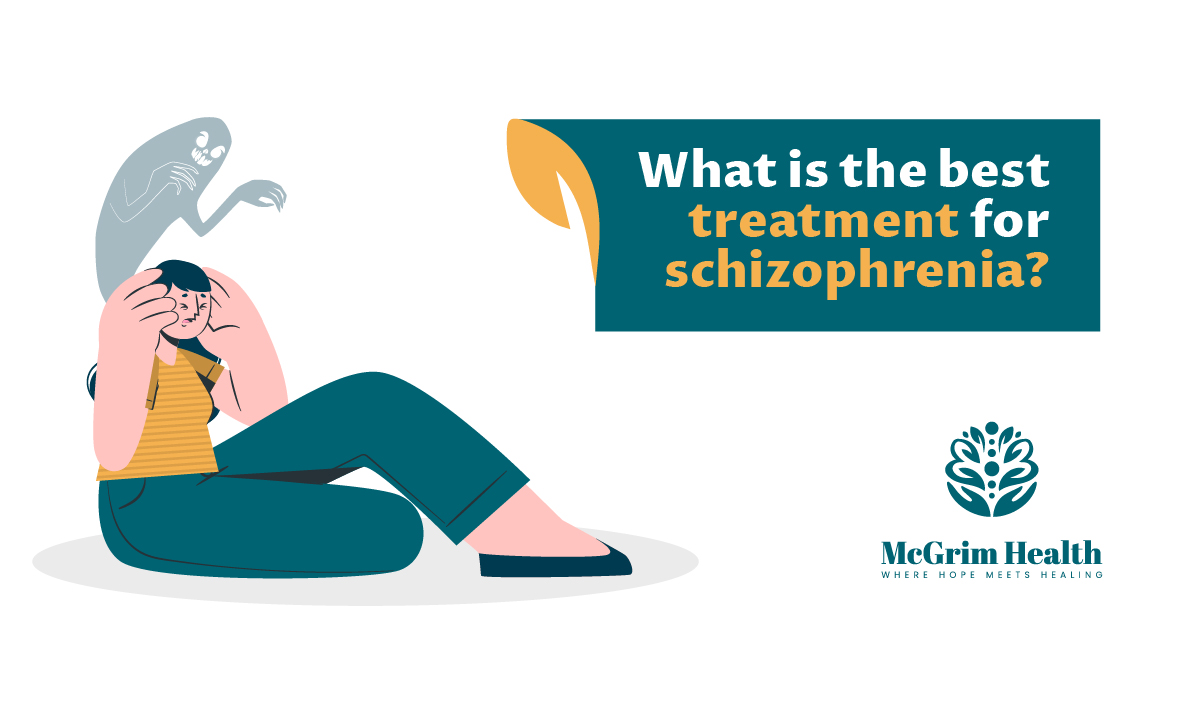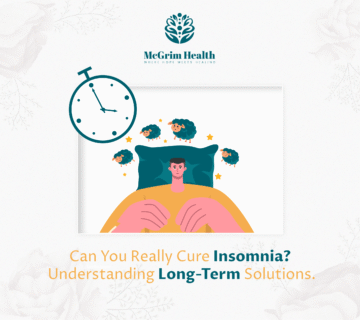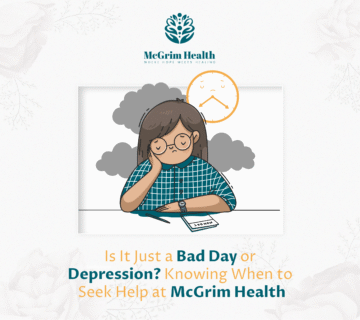Living with schizophrenia can be incredibly hard – not only for the patient but also their families and friends feel the impact too.
Having schizophrenia is an extremely tough experience.
Saying it’s essential to secure optimum treatment for this serious mental ailment is not an overstatement.
But what is the best treatment for schizophrenia? This post looks at various ways to manage and treat schizophrenia.
We discuss common medicines to new treatments for schizophrenia and all in their midst.
Our motive is to give comprehension, optimism, and a path ahead for people burdened with this condition.
An Overview of Schizophrenia and The Treatment Importance

Schizophrenia is a chronic and severe mental disorder that affects how a person:
●Thinks.
●Feels.
●Behaves.
People with schizophrenia appear as if they have lost touch with reality.
They experience hallucinations, delusions, and disorganized thinking.
With such a huge impact on existence, appropriate treatment is not just an option—it’s necessary.
The Symptoms, The Stigma, and The Struggle
A person suffering from schizophrenia can face different symptoms.
These symptoms can include:
●Hallucinations.
●Delusions.
●Disorganized thinking.
●Negative symptoms (no emotional expression or motivation.)
The stigma surrounding schizophrenia causes feelings of isolation and can intensify issues with managing the condition.
What Is the Best Treatment for Schizophrenia? – The Treatment Options
The treatment for schizophrenia can’t be generalized.
Rather, it means searching through a multitude of options that can be customized for each person’s unique situation.
Let’s look into the best treatment options for schizophrenia.
Medication-Based Treatments for Schizophrenia
Medication often forms the basis of schizophrenia treatment. They’re used to manage the symptoms well.
Let’s walk you through the different classes of medications available, their purposes, and how they are best used in a patient’s care plan.
1.Antipsychotic Medications
Antipsychotic medications – also known as neuroleptics, are the standard of care for schizophrenia.
They’re available in two generations; they work by altering the levels of dopamine in the brain, which is associated with the development of the disorder.
First-generation antipsychotics work well against positive symptoms, which are the more obvious symptoms like hallucinations and delusions, but they also come with side effects.
Second-generation antipsychotics, although still effective against positive symptoms, are often prescribed because they have fewer side effects.
2.Adjunct Medications
In addition to antipsychotic medications, adjunct treatments like mood stabilizers and antidepressants help in the treatment of schizophrenia.
What these medications do is stabilize mood fluctuations, and manage anxiety/depression symptoms.
Therapy-Based Methods to Schizophrenia Care
Even though medication can target the biochemical underpinnings of schizophrenia – therapy-based treatments allow people to cope with their symptoms and make progress as well.
1.Cognitive Behavioral Therapy
CBT shows promise in helping people manage their symptoms, reduce the chances of relapse, and improve their life quality.
The focus of therapy is to comprehend delusions and hallucinations and find healthy ways to manage these symptoms.
2.Family Therapy
Family therapy can also be an important part of schizophrenia treatment. It helps people and their families understand and manage the condition.
3.Support Groups
Support groups provide a setting where people with schizophrenia can share their experiences, find common ground, and build a support network.
Alternative Treatments to Handle Schizophrenia
Aside from usual health and therapy methods, other treatments provide additional options for dealing with schizophrenia.
1.Healthy Movement and Eating
Body wellness has a strong connection to the mind’s well-being.
Exercise can aid in handling stress and lifting spirits due to the rush of the “happy” hormone – endorphins.
In the same way, having a meal plan filled with fruits, veggies, and good protein can improve body wellness.
This might lower the health hazards tied to schizophrenia, like heart disease.
2.Mindfulness and Relaxation Practices
Mindfulness and meditation can help people with schizophrenia manage their stress, gain more focus, and achieve a stable and positive outlook.
When these practices are added into the patient’s routine, they help reduce emotional volatility often seen in schizophrenia.
3.Art Therapy
Art therapy provides a creative outlet. It can help people with schizophrenia get their thoughts out, process their feelings, and find new ways of coping.
Combination Therapies and Holistic Approaches
The true power of treating schizophrenia lies in combining several treatments and adopting a holistic approach.
1. The Interaction Between Medication and Therapy
By combining antipsychotic medications with therapy, patients can often experience better results than by using either method alone.
2. Holistic Treatment Model
Holistic approaches to treating schizophrenia treat the person as a whole.
It acknowledges the interconnectedness of their mental, emotional, physical, and spiritual health.
An integrated treatment approach to schizophrenia would include:
Med management.
●Therapy.
●Support (medical and social).
●Healthy lifestyle changes and adjustments.
The Final Word
In response to the question, “What is the best treatment for schizophrenia?”
Treatment depends on the person’s symptoms and severity, but a blend of medication, therapy and alternative treatments can help a person live more comfortably.
We believe in the importance of personalized care in treating schizophrenia.
We look forward to the future when ongoing research and dedication to mental health could give us access to even more reliable treatment options.
By understanding available options, sharing patient perspectives, and advocating for a personalized and comprehensive approach to care, we help those affected by the condition and inspire confidence that a fulfilling life is within reach, regardless of the difficulties of schizophrenia.
If you are going through this, please know that there is always a way out.
Please contact us directly at McGrim Health LLC for more information, details and questions about treatment for schizophrenia.
Get help and support today.
FAQ Section
Are there any new schizophrenia medications?
New schizophrenia drugs come out periodically, with advances in medical research.
They include different antipsychotic drugs that help manage symptoms with fewer side effects.
What does schizophrenia rehabilitation involve?
Rehabilitation for schizophrenia involves helping patients regain skills and reduce symptoms.
Among these are:
- Job training.
- Social skills development.
- And therapy that improves cognitive abilities and daily living skills.
How can I find schizophrenia doctors near me?
To find schizophrenia doctors in your area, you can:
- Search online directories.
- Ask for referrals from your PCP.
- Contact your insurance company for a list of covered professionals.
Where can I find a schizophrenia psychiatrist near me?
A psychiatrist specializing in schizophrenia can be found through:
- Local mental health clinics.
- Professional associations like the American Psychiatric Association.
- Getting a referral from a general practitioner.
What options are there for long-term care for schizophrenia patients?
Long-term care for schizophrenia can include:
- Residential treatment facilities.
- Group homes.
- Integrated community services that provide support for living independently.
- Long-term medication management and outpatient therapy can also be part of long-term care.
Can people with schizophrenia live independently?
With proper treatment and support systems in place, many people with schizophrenia can live independently.
This includes vocational training, social skills coaching, and community support services.
What is the recommended duration of treatment for someone with schizophrenia?
It involves regular psychiatrist visits, medication management, and possibly ongoing psychotherapy sessions or support groups.





No comment